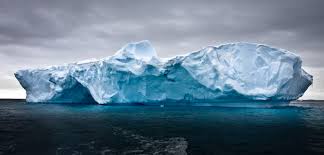记忆方法
将“iceberg”分解为两部分:“ice”和“berg”。记住“ice”代表冰,而“berg”与德语“Berg”相似,意味着山。想象一个巨大的冰山漂浮在水面上,大部分隐藏在水下,象征着事物只展示出其一部分。这种方法通过形象联想帮助记忆单词的含义。
以上内容由AI生成, 仅供参考和借鉴
中文词源
iceberg 冰山
ice,冰,berg,山,城堡。
英语词源
- iceberg (n.)
- 1774, partial loan-translation of Dutch ijsberg, literally "ice mountain," from ijs "ice" (see ice (n.)) + berg "mountain" (see barrow (n.2)). An earlier term was sea-hill (1690s). Phrase tip of the iceberg, in a figurative sense, first recorded 1962. Iceberg lettuce attested from 1893.
权威例句
- 1. The above complaints are, I suspect, just the tip of the iceberg.
- 我想,以上的抱怨只是冰山一角。
- 2. The Titanic met her fate by crashing into a huge iceberg.
- 泰坦尼克号客轮因撞上一个大冰山而沉没.
- 3. But this is only the tip of the iceberg.
- 然而,这仅仅是一种表面现象.
- 4. The ship hit an iceberg and went under.
- 船撞上一座冰山而沉没了.
- 5. The glacier calved a large iceberg.
- 冰河崩解而形成一个大冰山.
